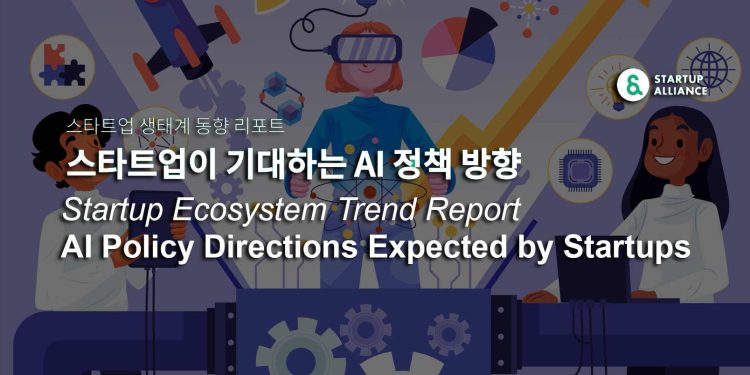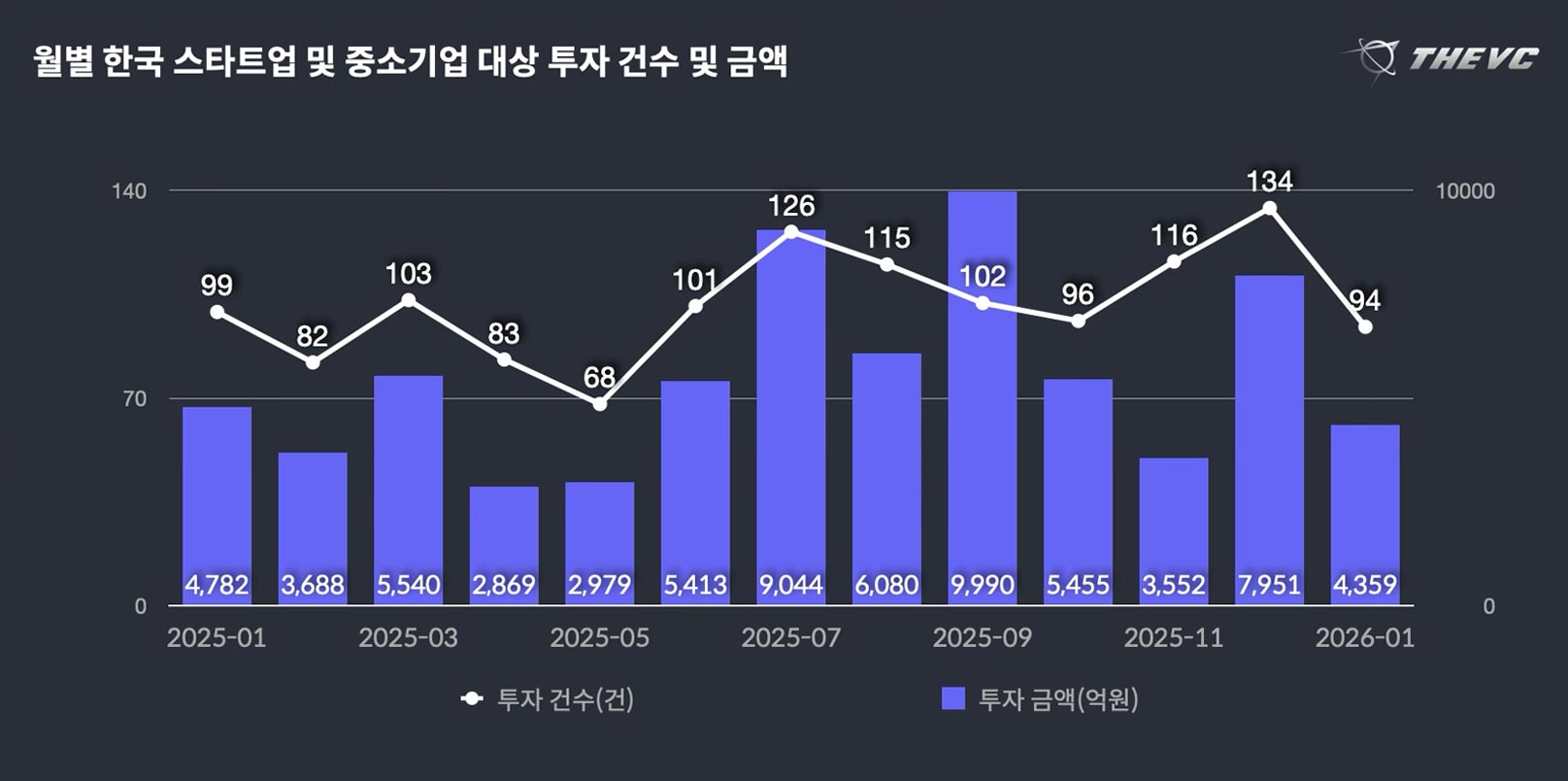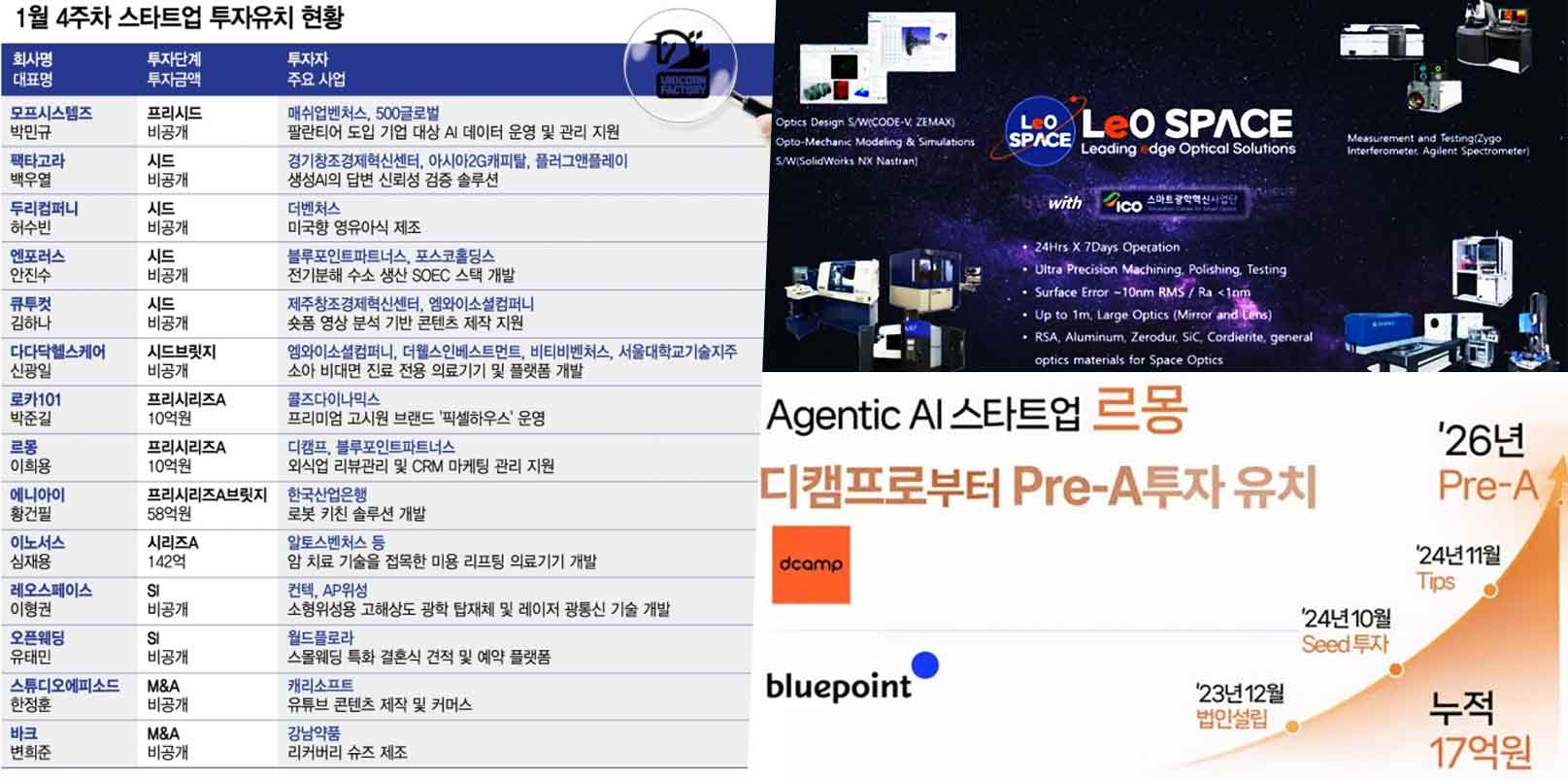Global investors watching Korea’s AI sector now have a roadmap to startups’ most urgent needs. A new survey shows that policy gaps differ sharply by stage, influencing which companies can scale and which may stall. Understanding these demands offers investors deeper insight into where Korea’s AI startups and the whole ecosystem are positioned for sustainable growth—and where risks remain.
Korean AI Startups Outline Policy Priorities in New Report
The Startup Alliance released a report on October 2, 2025, titled “AI Policy Directions Expected by Startups.”
Based on a survey of 101 AI startups, the report reveals that founders’ policy expectations differ significantly depending on their investment stage, yet converge around three themes: AI infrastructure expansion, regulatory reform, and access to usable data.
Startups ranked AI infrastructure expansion (22.8%), regulatory innovation (20.8%), and investment and financial support (18.8%) as their highest policy expectations. When extended to top three choices, investment/financial support (62.4%) and AI R&D and demonstration support (57.4%) led, followed by data openness/utilization (51.5%) and regulatory reform (48.5%).
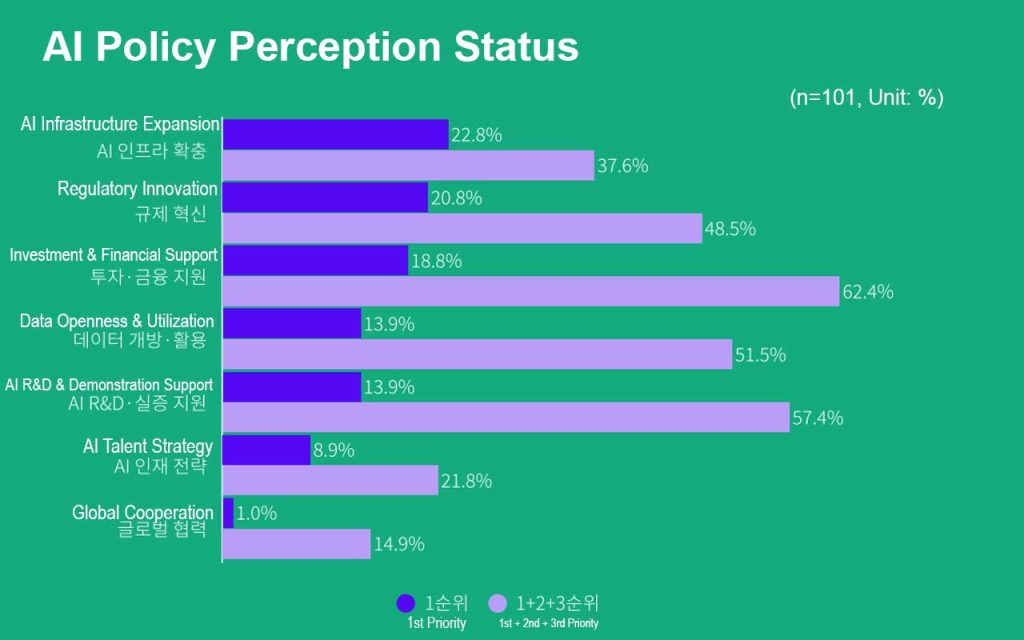
Stage-Specific Demands: How Korea’s AI Startups Need Shifts as They Grow
The survey found that startups at different growth stages emphasize different policy priorities:
- Seed stage: Strong demand for data openness/utilization (35.3%) and AI infrastructure (29.4%), reflecting the challenge of securing quality datasets and computing resources.
- Pre-A stage: Rising need for regulatory innovation (26.3%), as founders navigate regulatory uncertainty during early commercialization.
- Series A stage: Equal demand for infrastructure, R&D/demonstration support, and financial backing (26.3% each), highlighting the need for proof-of-concept and business model validation.
- Series B and above: Priority shifts toward investment/financial support and regulatory reform, particularly for scale-up and global expansion.
Across all stages, startups stressed that regulatory innovation must move beyond declarations toward concrete reforms that lower barriers to entry and accelerate commercialization.
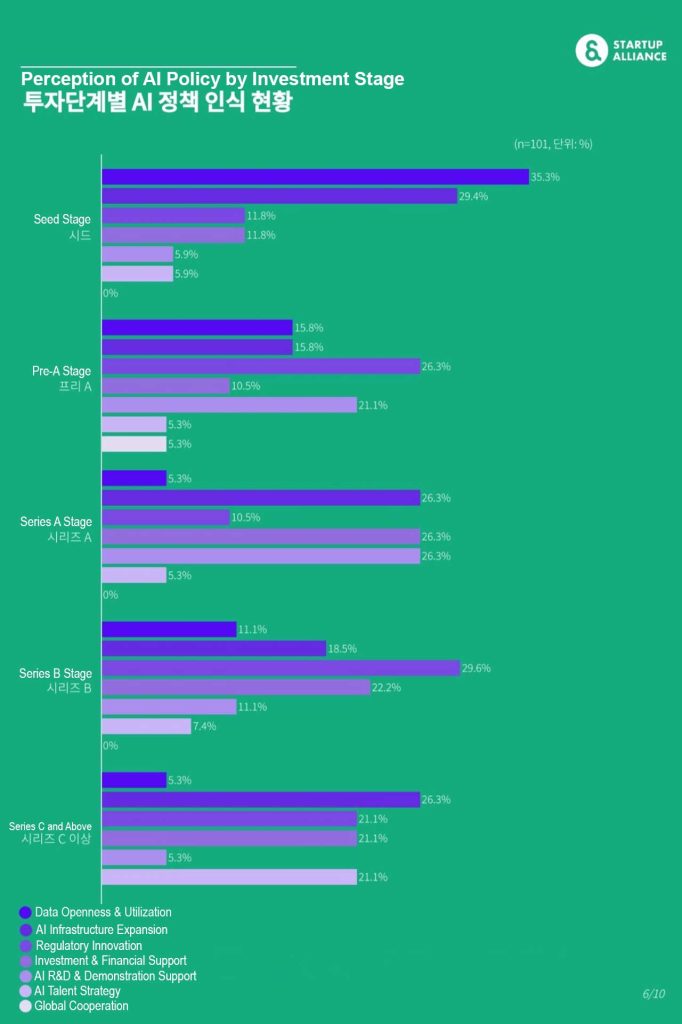
What Korea’s AI Startups and Analysts Are Saying About AI Policy
The Startup Alliance report emphasized,
“Regulatory reform is a common demand across all stages and must be institutionalized through effective measures. Only then can Korea move beyond AI technology development and commercialization to build an AI-based innovation ecosystem with global competitiveness.”
Lee Ki-dae, head of the Startup Alliance Center, added,
“AI is a core infrastructure driving innovation across industries, so policies must translate into support that startups can tangibly experience. Since the regulatory environment has a major impact on scaling, I hope effective systems are designed to promote corporate activity.”
A Critical Step Toward Positioning Korea as a Global Venture Capital Hub
The findings illustrate a key challenge in Korea’s innovation economy. Startups see AI as a national growth engine, but their needs shift as they grow. Early entrants struggle with data and infrastructure access, mid-stage firms demand regulatory flexibility, and later-stage firms require financing and supportive rules for global expansion.
This stage-specific demand reflects a broader trend across the Asia-Pacific startup ecosystem: governments are under pressure to design policies that not only fund innovation but also remove structural barriers that prevent startups from moving from seed to scale-up.
Without systemic reform, Korea risks a two-speed AI economy: a handful of scale-ups backed by mega funding, while early innovators face barriers in data access and testing environments. Addressing this imbalance will be critical if Korea aims to position itself as a global venture capital hub and a leader in cross-border AI commercialization.
Building a Globally Competitive AI Innovation Framework
Korea’s AI startups and the whole ecosystem now stand at a crossroads. The survey shows startups are not asking for one-size-fits-all solutions but for policies tailored to their growth stage. Infrastructure and data access, investment mechanisms, and regulatory reform are not separate issues but interconnected levers that determine whether Korea can secure long-term competitiveness.
At the end of the day, policy must grow alongside the companies it aims to support. And so, Korea’s next test is whether it can protect the pipeline of early innovators while enabling scale-ups to expand globally. The outcome will decide if the country lingers in the shadow of fast followers or rises as a genuine leader in the global AI race.
– Stay Ahead in Korea’s Startup Scene –
Get real-time insights, funding updates, and policy shifts shaping Korea’s innovation ecosystem.
➡️ Follow KoreaTechDesk on LinkedIn, X (Twitter), Threads, Bluesky, Telegram, Facebook, and WhatsApp Channel.


